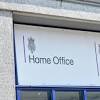Why return of inflation echoes 1970s-style economic nightmare

Wage figures published this week will worry officials. Year-on-year private sector wage growth jumped to 5.4pc in the three months to October, up from 4.9pc in the three months to September. From April, employers will also have to shoulder the increase in their National Insurance contributions announced in the Budget.
“That too is a big increase in costs, so there is cost pressure and that is raising prices, but it also means that some economic activity isn’t feasible any more because some jobs will basically become unprofitable,” says Wishart.
Inflation is only going to go up. The jump in the headline figure on Wednesday was driven by higher petrol prices, food prices and the Chancellor’s decision to raise tobacco duties in the Budget.
But it is next year when the Chancellor’s Budget decisions will really start to push up prices.
Reeves’s move to charge VAT on private school fees in January will add 0.12 percentage points (ppts) to inflation, while increases in vehicle excise duty will add 0.19ppts in April, says Wood.
“Fourteen other tax-driven, government-set or inflation-indexed price rises will add another 32bp [0.32ppts] to the CPI by next April,” he says.
Higher employer National Insurance and the larger than expected increase in minimum wage announced at the Budget will heap extra costs on businesses.
Shops have warned the total extra cost for the retail sector will total £7bn, a bill that Kris Hamer, of the British Retail Consortium (BRC), says will “inevitably lead to price rises and job losses”.
On top of the Budget measures, the UK economy will have to grapple with Republican president-elect Donald Trump’s plans to introduce wide-ranging trade tariffs, which will drive up the cost of exporting.
Against this backdrop, Britain is grappling with an unexpected downturn in economic growth which has taken forecasters aback.


 United Kingdom
United Kingdom Argentina
Argentina  Australia
Australia  Austria
Austria  Brazil
Brazil  Canada
Canada  Germany
Germany  Ireland
Ireland  Italy
Italy  Malaysia
Malaysia  Mexico
Mexico  New Zealand
New Zealand  Poland
Poland  South Africa
South Africa  United States
United States 






















